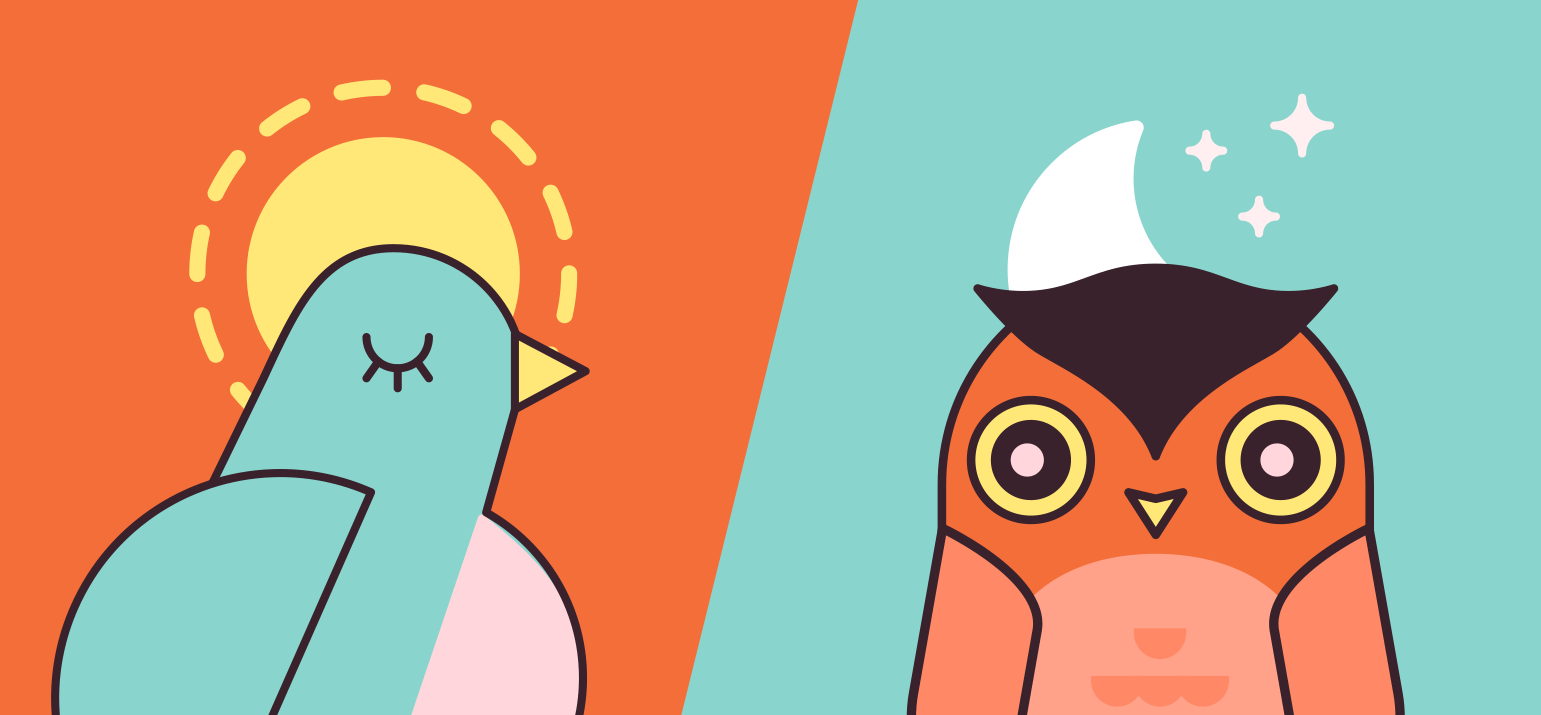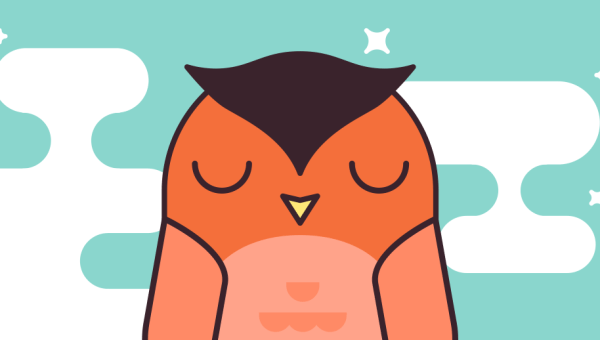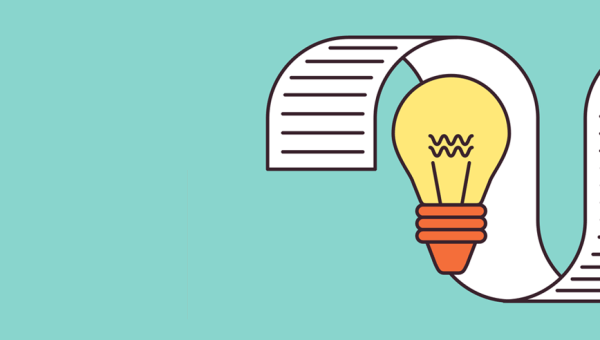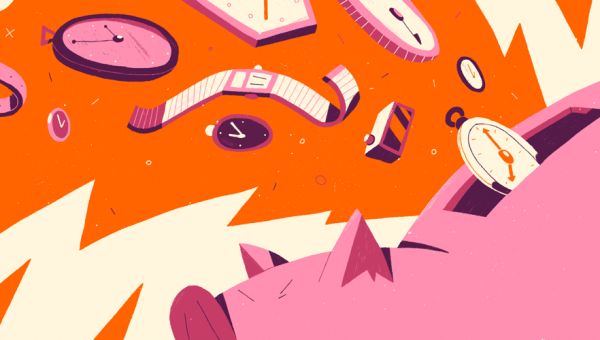As a MailPoet user, you’re probably getting most of your work done at the edges of the day – after all, you’re a busy person!
In this post, we’re going to compare the advantages and disadvantages of doing creative work early in the morning versus late at night. While it ultimately comes down to personal preference, there are definite benefits and drawbacks of each approach. Let’s get started!
The early bird gets the worm…
I absolutely love the early morning. Before the sun comes up, anything is possible. It’s empowering to get a head start on the world, before anyone else has woken up; the darkness of the early morning cuts out distractions and lets me focus on the work. Ernest Hemingway, the famous American author, agreed:
“When I am working on a book or a story I write every morning as soon after first light as possible. There is no one to disturb you and it is cool or cold and you come to your work and warm as you write.”
Personally, I have the most motivation in the morning, so I aim to complete my most important tasks first thing. If I wait until the evening to get my writing done, I generally don’t have the energy. As a coffee addict, writing naturally goes with drinking coffee, and it’s obviously much easier (and healthier) to drink espresso in the morning than at night!
But who wants to eat worms?
The disadvantages of waking up early mostly boil down to losing out on social opportunities. While waking up at 5 a.m. can be a huge boost to your productivity, it can also isolate you from friends, family, and future business contacts. When you need to be in bed by 9 p.m., it can be difficult to network after work or even have a late dinner with friends. Social connections are often the deciding factor between success and failure, so it may be worth staying out later to build a solid relationship with your coworkers and managers.
In the past, I’ve personally experimented with waking up very early (4 a.m. to 5 a.m.). The unfortunate reality is that it’s nearly impossible to have a social life when you keep hours drastically different from everyone else.
The second mouse gets the cheese…
Now, let’s talk about working at night. The evening and night is often the most peaceful time of the day. No distractions, no jobs or appointments to rush to, and nothing to worry for the upcoming day – it already happened. There is no “dread” factor. Plus, you may just get some inspiration for your writing from the day’s events. Many famous writers, including Franz Kafka and George Orwell, liked to write at night:
“[Kafka] came home from his desk job every afternoon and settled straight into a nap that could last as long as four hours. The reason, he claimed, was the need for complete quiet in the house in order to write — a state achieved only in the late night hours.”
…But who wants to be a mouse?
Writing at night has one fatal flaw – you might miss out on sleep! If you have a typical day job, you probably have to be at work by 9:00 a.m. or 10:00 a.m. in the morning. Thus, staying up until 2:00 a.m. writing isn’t a possibility – unless you don’t sleep, that is! Over time, sleep deprivation will dramatically lower the quality of your work. Any short-term productivity benefits are not worth it in the long-term…or are they?
You can always turn your insomnia into a piece of work itself. Matt Berry, the musician and actor, did just that. Fed up with the wasted time lying in bed, Berry used the time to make an album, fittingly titled Music for Insomniacs.
For the rest of us, though, it’s probably best to sleep at a regular hour :)
The other disadvantage to writing at night: nighttime is often an unreliable time slot. There may be times when you simply aren’t able to sit down in the evening to write due to family, friends, or other obligations. As a result, you’ll be less consistent (and consistency is key – check out our post on it.)
This is my personal hang-up with night writing. After a long day, do I really want to sit down and work? Most of the time, nope. Your experience may vary.




Like your writing style – it’s entertaining and engaging, with some interesting snippets of information!
Thanks! I appreciate the compliment :)